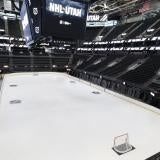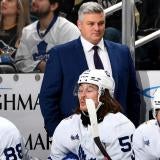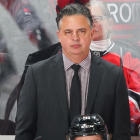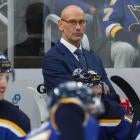For most of his career it has pretty much been the consensus around the NHL that Pittsburgh Penguins forward Sidney Crosby has been the best player in the world.
Because that is such a subjective title that could mean different things to different people, there have been challengers for that title. There have been arguments that others have passed him, especially after each of the Penguins' recent postseason disappointments.
But when it comes to the best players in the NHL it is still probably Crosby at the top of the list.
His edge in production over the rest of his peers is still substantial. And he has maintained that level of production while taking on a larger role defensively with the Penguins in recent years, being asked to start in more defensive situations while also improving his defensive play. He is a possession-driving center who has not had elite wingers on his side (and other than Evgeni Malkin over the past two or three years, no real impact forwards on his roster to help him) and as long as he is healthy enough to play a full season he should still pretty much be a lock to to win the scoring title.
He has led the NHL in points per game in five of the past six seasons, and the only year he didn't lead, 2011-12, was because he didn't play enough games to quality. He averaged 1.68 per game in only 22 games. The league leader that year was Malkin at 1.45. Nobody else finished with more than 1.22. The only thing that has prevented him from adding to his Art Ross collection is the fact that injuries (mostly of the bad luck variety) have allowed him to play more than 70 games just twice in the past five years.
Individually, there is nobody who can match his level of production and ability. Even if you look at just the past three seasons, Crosby's 1.26 points per game is 0.17 higher than the second most productive player (his teammate, Malkin). The gap between Crosby and Malkin at the No. 1 and 2 spots is the same as the gap between Malkin and the 15th most productive player over that same time period (Phil Kessel).
It's an incredible level of production. Video game stuff. And even if you want to argue that there are very good offensive players who are better defensively than Crosby (and there are) that difference in defensive ability isn't enough to make up for massive difference in offense.
But because he hasn't had much success on a team level in recent playoffs, there always seems to be a belief that players on better teams have taken his crown as the best in the world. When the Penguins lost to the Flyers in the 2012 postseason there was a four-week stretch where Claude Giroux was the new best player in the world. Then in 2014 during the Los Angeles Kings' second Stanley Cup run in three years it was Drew Doughty who carried the torch. Now, with his third Stanley Cup title in six years, it's Jonathan Toews.
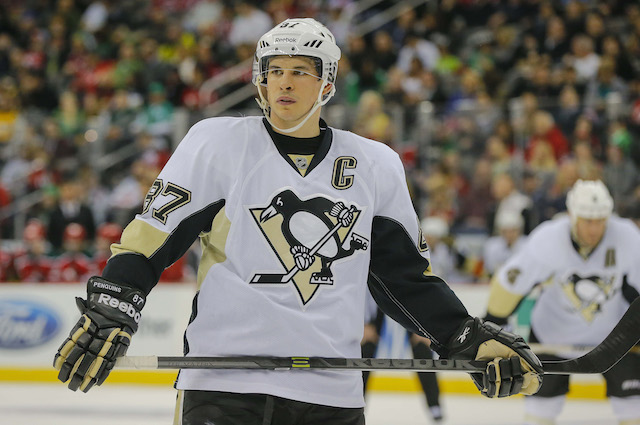
The problem with pointing to team success and using it as a measuring stick for individual performance (or for when it comes to proclaiming a player as the best) is that it puts all of the success or failure of a team on one player. Unless you're talking about a goaltender, that one player is only going to play, at most, half of the game every night. There's nobody in the league who can do it alone, and the difference between a team like the Chicago Blackhawks over the past six years (three Stanley Cup titles) and a team like the Pittsburgh Penguins (no championships in that time) isn't the difference between Toews and Crosby, it's the difference in the supporting cast those players have around them.
When Toews goes several games in the playoffs without a goal (and it happens) it rarely impacts the Blackhawks in a negative way because they have so many other players who can pick up the slack offensively to keep the team moving along. When Crosby hits a similar drought and the team loses because the lackluster supporting cast can't score, it all comes back to him not leading enough or not coming through in big games. But even with the Penguins' lack of team success, and the highly publicized scoring droughts that Crosby went through the past two postseasons, he has still been one of the most productive players in the postseason since 2010, averaging 1.08 points per game in the playoffs. Only two players in the league are ahead of him (Ryan Getzlaf at 1.15 and Giroux at 1.09).
That lack of team success, combined with the fact that Crosby has seen a decline in his point production over the past couple of years has helped lead to the "best player in the game" discussion being so wide open.
It is true that Crosby has probably already played his best hockey, and unfortunately for him and the Penguins, several of those years probably came in some of his most injury-filled seasons. We already know that scorers tend to hit their peak somewhere between 23 and 26, and now that Crosby is entering what will be his age-28 season, he is obviously beyond that point. And the numbers verify that.
But the thing that gets missed in discussions like this is that great players can be "declining" and still be great, dominant and dynamic players. A 28-year-old Sidney Crosby no longer in his peak years is still better than just about every other player. He just might not be as productive as he was at 23 or 24. It happens to every player. It happened to Wayne Gretzky. It happened to Mario Lemieux. It's already happening to Crosby and Alex Ovechkin. And you're probably going to see a similar progression in the coming years for guys like Toews and Patrick Kane in Chicago, and Ryan Getzlaf and Corey Perry in Anaheim and Anze Kopitar in Los Angeles.
They will still be great. But simply not as great.
I really started thinking about all of this this about a week ago. During a radio appearance in Buffalo, I was asked about Crosby being the best player in the league, how much longer he might continue to have that title, and whether the Penguins are still in their Stanley Cup window with him. After their most recent offseason additions, including the trade for an elite goal-scorer in Kessel and the depth additions of Nick Bonino and Eric Fehr, I think the answer to the latter question is yes, especially in the current Eastern Conference that is always wide open for the taking.
But when it comes to Crosby's spot at the top of the league, there is going to be a time in the not-too-distant future when somebody does pass him.
But who is that player going to be?
For the reasons stated above, when it comes to peak performance in the league and when players hit that level, I think it almost has to be somebody in the NHL that is still on the younger side, probably no older than 26 right now, and not only already one of the better players in the league, but also still on an upward trend.
So who fits that criteria?
1. Tyler Seguin, Dallas Stars: This is the type of player who could really take off in the next couple of years, and since the trade to Dallas he has already started. He doesn't turn 24 until January so he still might be entering his peak years and he is already one of the most productive players in the NHL. He's also playing on a team that should be on the rise in the Western Conference and should be one of the most dangerous offensive teams in the league. Seguin has a scoring title (perhaps more than one) in his future. Maybe even as soon as this season.
2. John Tavares, New York Islanders: Like Seguin, he is just now entering his peak years, is already one of the most productive players in the NHL and is the foundation of an Islanders team that is returning to relevancy. He also might have the defensive edge over Seguin at this point in his career with nearly equal offensive production.
3. Steven Stamkos, Tampa Bay Lightning: One of the best goal scorers of his generation, Stamkos is entering his age-25 season and should be right in the meaty part of his prime years. He probably doesn't have many years of improvement ahead of him when it comes to his offensive production, but his all-around game has steadily improved over the years and he is still capable of putting 50 in the back of the net any given season.
4. Carey Price, Montreal Canadiens: A wild card in the race because he's at an age where he is probably done improving. But he also might be the best player at his position, which is probably the only position that can be responsible for almost single-handedly lifting a so-so team to contender status, just as he did this past season with the Canadiens. That counts for something.
5. Connor McDavid, Edmonton Oilers: A massive leap of faith to put McDavid in this discussion, and we're probably putting the cart way in front of the horse, but if he is even anything close to the hype he could be on the fast track to stardom in the NHL. Remember, Crosby himself (the player McDavid is most often compared to) won a scoring title during his second season in the league.








